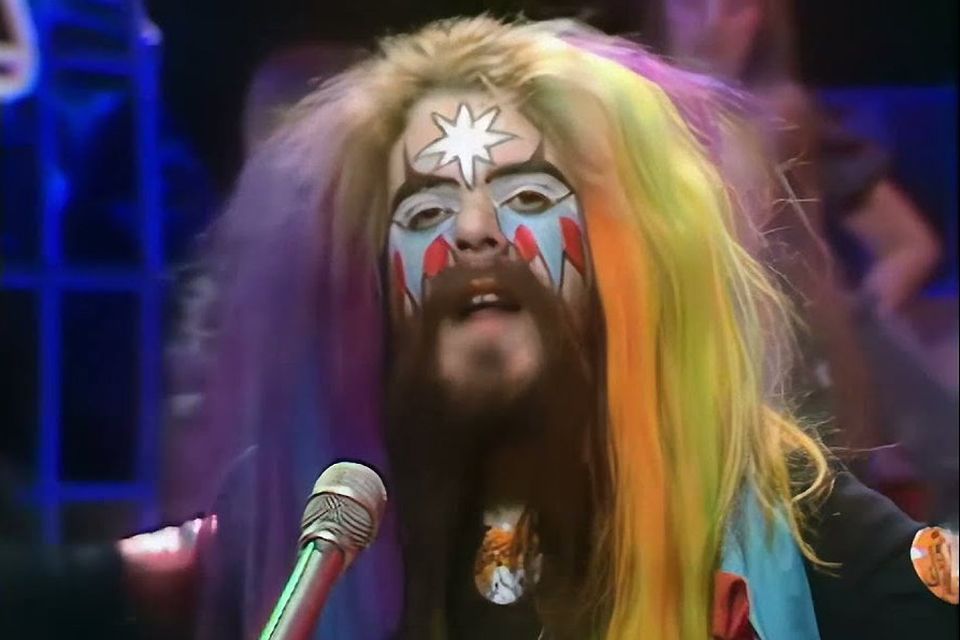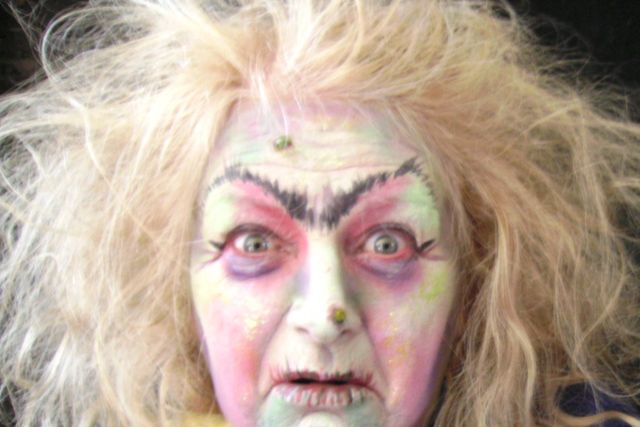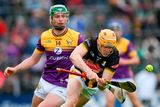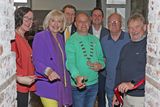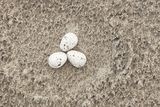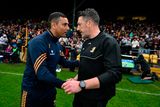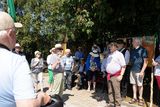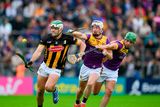Retro Top Ten Chart 1973: The Wizzard number one that inspired ABBA’s Waterloo
Roy Wood and Wizzard performing "See My Baby Jive" on Top of the Pops in 1973.
1 See My Baby Jive Wizzard
2 Can The Can Suzi Quatro
3 One and One is One Medicine Head
4 And I Love You So Perry Como
5 Rubber Bullets 10CC
6 Albatross Fleetwood Mac
7 You Are The Sunshine Of My Life Stevie Wonder
8 Hell Raiser The Sweet
9 Tie A Yellow Ribbon Round The Old Oak Tree Dawn
10 Walking In The Rain The Partridge Family
Wizzard’s first number one fifty years ago this week has an impressive claim to fame: the 1973 chart-topper was later acknowledged by ABBA as the major influence on their Eurovision smash “Waterloo”, released the following year.
After their Eurovision victory, ABBA said they wouldn’t be surprised if artists such as Wizzard considered entering the contest in the future.
In fact, Wizzard frontman Roy Wood did have his compisition “Songs Of Praise” shortlisted by the BBC as one of six possible choices for the UK entry in the Eurovision Song Contest 1972. When performed by the New Seekers on the Cliff Richard TV series It’s Cliff Richard!, the song finished in last place with 3,842 votes.
“See My Baby Jive” was the second single from Wizzard, the English glam rock band formed by Wood, former member of the Move and co-founder of Electric Light Orchestra.
The band are most famous for their 1973 Christmas single “I Wish It Could Be Christmas Everyday”, but “See My Baby Jive” was their biggest hit on original release. It spent four weeks at number one in the UK and sold over a million copies worldwide. It was also a chart-topper in Ireland and reached the top ten in Australia, Germany and Norway. Wizzard did not have any impact in the US... thanks to a lack of record company marketing, according to the band.
“See My Baby Jive” (and indeed ABBA’s “Waterloo”) was a tribute to Phil Spector’s “Wall Of Sound”. After leaving the Electric Light Orchestra in 1972, Roy Wood had founded Wizzard, assembling cellists, brass players and a big rhythm section, with several drummers and percussionists. The band scored seven hits in the UK charts, including two consecutive number ones - “See My Baby Jive” and “Angel Fingers”.
Despite its popularity and longevity as a firm festive favourite, “I Wish It Could Be Christmas Everyday” only peaked at number four in the UK charts, and number six in Ireland in 1973.
Thanks to the number of people onstage - and keyboard player Bill Hunt’s propensity to smash pianos or the venues where they played - Wizzard was an expensive band to maintain. Members dropped out as live touring failed to meet wage bills and, by late 1975 the band had split. Their farewell single “Rattlesnake Roll” failed to chart and the release of a third album was cancelled by their record label, who deemed it insufficiently commercial.
Following the band’s split, Roy Wood and bassist Rick Price formed the short-lived Wizzo Band, after which Wood returned to a solo career in addition to producing records for other acts, notably the 1979 top 10 cover version of “Duke of Earl” for Darts.
